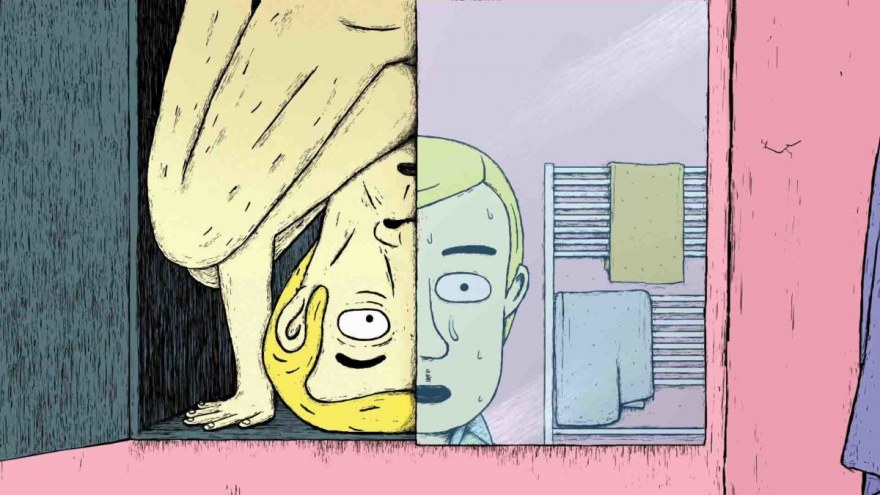Breakfast with Je sors acheter des cigarettes [I’m Going Out for Cigarettes]
Interview with Osman Cerfon, director of Je sors acheter des cigarettes [I’m Going Out for Cigarettes]
I read that the film was selected by the Locarno festival on just a working copy – that is quite rare. Did you feel a lot of buzz generating around this film from the beginning?
It’s always difficult to say. Indeed, I had good feedback on the film, and it has already been programmed in a few rather prestigious festivals. But in general, the people who don’t like the film don’t come and tell you in person.
Emotion is indeed present in your film, but it intervenes by indirect means. There is the feeling that you don’t want to dictate to the viewer what they should feel: was this important for you, to not make everything explicit?
Absolutely. In fact, I don’t know if emotion can arise in a viewer if we try to impose it upon them. I never judge my characters, I always leave the viewer the choice to do that or not. For me, emotion is something quite mysterious, for a long time I even thought that it was something that would always be missing from my films. When I was working on the script, I had a screenwriter friend read a draft. He pointed out, and rightly so, certain things to work on, but he also said that he was moved by reading it. After the initial surprise I felt receiving this feedback, I said to myself that it would be a shame to lose that as I completed the film… In fact, it is one of the reasons why I aimed for staging and graphics that were less synthetic than usual, allowing the viewer to more easily identify with the characters in the film.
The animation allows you to give form to absence and to the character’s imagination, notably through the incongruous omnipresence of that man in the apartment. What can you say about that offbeat, even slightly surrealistic choice of tone?
Before even knowing exactly what the film would talk about, I already had the tone in mind. It was a bit unclear in the beginning, but it became more refined as the screenwriting and preparation for the film progressed. It was like a sort of canvas. A feeling that fluctuates between fantasy, film noir, and a social comedy… I quickly became aware that it would be a work of balancing these different tones, to make them coexist, but in the end it wasn’t all that complicated because everything came together in quite an instinctive way. I think that sort of ambivalence is part of my everyday life… For example, I always struggle with multiple-choice questions, I always feel frustrated when I can’t add nuance to my responses. I like things that are moving and difficult to grasp… I’m quite touched by the fact you use the words “omnipresence” and “absence” in the same sentence. Because these were the initial ambitions of this film: to describe the omnipresence of an absence.
The film’s theme of absence is a universally shared theme. How do you feel about the visibility of short film, which is sometimes limited to a restricted audience? Are there any particular freedoms that the short film format allows you?
It in fact this “restricted” visibility that gives us this freedom of tone. This is true for cinema in general, but even more so for animation. The technical (and thus economic) constraints involved in making an animated film are so great, and the preconceived ideas people have about the medium are still so present that the short format, thanks to its confidentiality, can be considered a sort of refuge… I sometimes even wonder if I shouldn’t have taken even greater advantage of the freedoms the format allows. And after all, there are festivals that show short films in almost every country in the world, so I would tend to relativize the term “restricted”… When it is widely distributed, we still have the opportunity for the film to be seen by lots of different people.
Je sors acheter des cigarettes was shown in National Competition.








